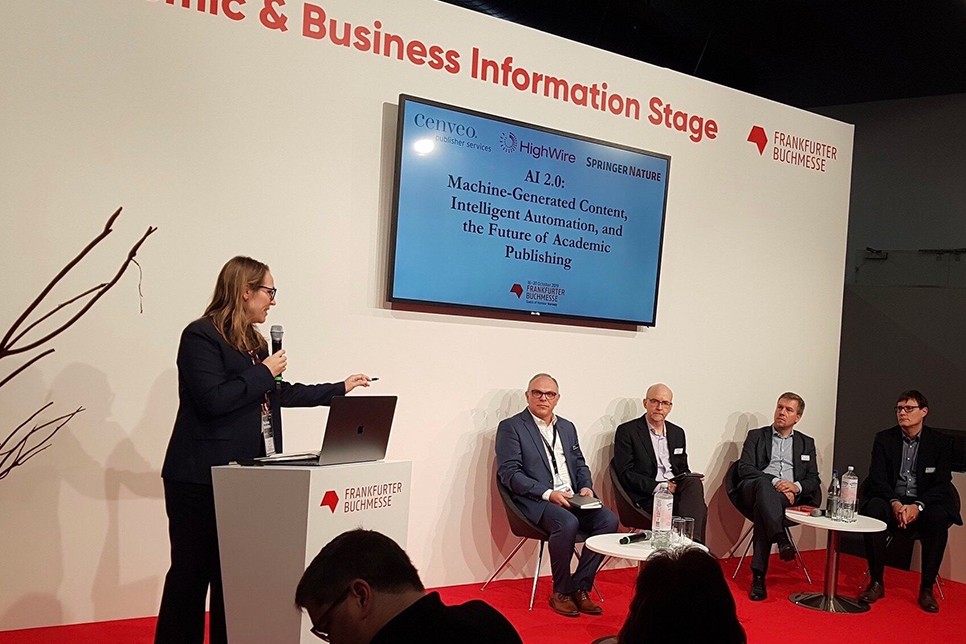
Every year at the Frankfurt Book Fair, there is a buzzword or phrase that continues to pop up on panels, in articles, and in conversations and meetings. In the past, we have seen ‘big data’ and ‘blockchain’ dominate the headlines, but this year’s buzz word (or acronym) was ‘AI,’ as publishers, information professionals, service providers, and the media debated how this technology can be used in the industry.

Over the course of the last five years, AI, natural language processing (NLP), and machine learning (ML) have been much talked about, as well as trialed and tested, in the publishing industry. These technologies are often the focus of panel discussions at conferences such as this one, discussions that have illustrated how AI could be used for a variety of purposes: discovery, peer review, bestseller predictions, and, perhaps most importantly, improving publisher efficiency.

In 2017 we published a white paper entitled Six Big Trends Reshaping K-12 Education Publishing which focused on some of the major developments driving innovation and change in the sector. The report homed in on issues such as changing legislation and standards, accessibility and demographic shifts, while also exploring how publishers are adapting to classroom and curricula trends such as OER (Open Educational Resource) and adaptive tech.

With the onset of digital publishing, researchers and publishers have had the opportunity not just to provide footnotes or a bibliography but to include links back to source material. By making that information more accessible, challenging or verifying research findings has become easier. But, linking alone is not enough as links can break and there is no uniform style or requirement which publishers must adhere to.

In recent years, publishers have begun to utilize advances in artificial intelligence (AI) and machine learning to significantly change their businesses for the better. Though some innovations, such as using an algorithm to predict if a book will be a bestseller, have gotten more news coverage, AI and machine learning have been incredibly useful to publishers to help process user data to better understand the marketplace, to improve peer review, to help with workflow, and even to create new products. Here are some of the most notable current trends we have observed:

You may have heard how artificial intelligence (AI) is being deployed within the information industry to combat fake news, detect plagiarism, and even recommend content to users. Until now however, AI has had minimal impact on the content creation and editorial functions of the publishing ecosystem.







